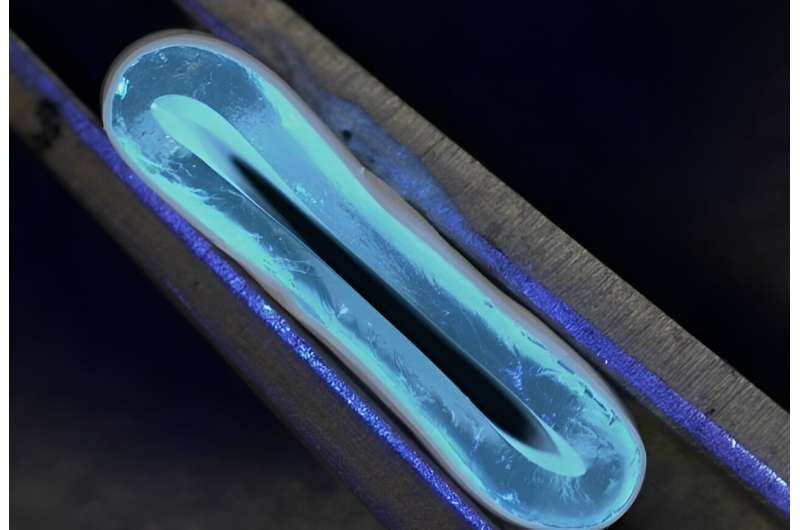This article has been reviewed according to Science X's editorial process and policies. Editors have highlighted the following attributes while ensuring the content's credibility:
fact-checked
peer-reviewed publication
trusted source
proofread
Artificial blood vessels could improve heart bypass outcomes

Strong, flexible, gel-like tubes—created using a novel 3D printing technology—could improve outcomes for heart bypass patients by replacing the human and synthetic veins currently used in surgery to re-route blood flow, experts say.
The development of synthetic vessels could help limit scarring, pain and infection risk associated with the removal of human veins in bypass operations, of which some 20,000 are carried out in England each year. The products could also help alleviate the failure of small synthetic grafts, which can be hard to integrate into the body.
In a two-stage process, a team of researchers led by the University of Edinburgh's School of Engineering used a rotating spindle integrated into a 3D printer to print tubular grafts made from a water-based gel.
They subsequently reinforced the printed graft in a process known as electrospinning, which uses high voltage to draw out very thin nanofibers, coating the artificial blood vessel in biodegradable polyester molecules.
Tests showed the resulting products to be as strong as natural blood vessels.
The 3D graft can be made in thicknesses from 1 to 40 mm in diameter, for a range of applications, and its flexibility means that it could easily be integrated into the human body, the team says.
The next stage of the study will involve researching the use of the blood vessels in animals, in collaboration with the University of Edinburgh's Roslin Institute, followed by trials in humans.
The research, published in Advanced Materials Technologies, was carried out in collaboration with Heriot-Watt University.
"Our hybrid technique opens up new and exciting possibilities for the fabrication of tubular constructs in tissue engineering," says Dr. Faraz Fazal.
"The results from our research address a long-standing challenge in the field of vascular tissue engineering—to produce a conduit that has similar biomechanical properties to that of human veins," says Dr. Norbert Radacsi, principal investigator, School of Engineering, University of Edinburgh.
"With continued support and collaboration, the vision of improved treatment options for patients with cardiovascular disease could become a reality,"
More information: Faraz Fazal et al, Fabrication of a Compliant Vascular Graft Using Extrusion Printing and Electrospinning Technique, Advanced Materials Technologies (2024). DOI: 10.1002/admt.202400224





















